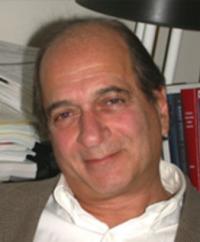Jeffrey Fagan, PhD
- Isidor and Seville Sulzbacher Professor of Law and Professor of Epidemiology

Overview
Academic Appointments
- Isidor and Seville Sulzbacher Professor of Law and Professor of Epidemiology
Credentials & Experience
Education & Training
- BA, 1968 New York University
- MS, 1971 SUNY
- PhD, 1975 SUNY
Committees, Societies, Councils
Fellow, American Society of Criminology
Fellow, National Consortium on Violence Research
Member, MacArthur Research Network on Adolescent Development and Juvenile Justice
Editorial Boards
Journal of Criminal Law and Criminology
Journal of Quantitative Criminology
Crime and Justice: Review of Research
Honors & Awards
RWJ Health Policy Investigator Award, 2002
Soros Senior Justice Fellowship, 2005
Fellow, American Society of Criminology, 2001
Bruce Stone Award, Association of Criminal Justice Sciences, 1998
Research
Research Interests
- Biostatistical Methods
- Child and Adolescent Health
- Community Health
- Global Health
- Infectious Diseases
- Mental Health
- Substance Use
Selected Publications
Fagan J., West V., The Decline of the Juvenile Dealth Penalty: Scientific Evidence of Evolving Norms Journal of Criminal Law and Criminology, forthcoming
Tom Tyler and Jeffrey Fagan Legitimacy, Compliance and Cooperation: Procedural Justice and Citizen Ties to the Law Ohio State Journal of Criminal Law 6 231-275 2008
Fagan J., Tyler T.R., Legal Socialization of Children and Adolescents Social Justice Research, forthcoming
Ethan Cole-Cohen, Steven Durlauf, Jeffrey Fagan, Daniel Nagin Model Uncertainty and the Deterrent Effect of Capital Punishment American Law and Economic Review forthcoming 2009
Fagan J., West V., Holland J., Neighborhood, Crime, and Incarceration in New York City. Symposium on Race, Crime and Voting: Social, Political and Philosophical Perspectives on Felony Disenfranchisement in America. Columbia Human Rights Law Review, forthcoming
Jeffrey Fagan Juvenile Crime and Criminal Justice: Resolving Border Disputes Future of Children 6 81-129 2008
Fagan J., Malkin V., Theorizing Community Justice Through Community Courts Fordham Urban Law Journal, 30: 857-953 2003
Arthur Goldberger and Richard Rosenfeld Understanding Crime Trends National Academy Press 81-216 2008
Fagan J., Zimring F.E. (eds), The Changing Borders of Juvenile Justice: Waiver of Adolescents to the Criminal Court. University of Chicago Press, 2000
Fagan J., Freeman R.B., Crime and Work Crime and Justice: A Review of Research, 25: 113-78 1999
Hartmann, F., Symposium for the 30th Anniversary of the 1967 President's Commission on Law Enforcement and the Administration of Justice, Office of Justice Programs, Washington D.C. 1998
Fagan J., Davies G., The Natural History of Neighborhood Violence Journal of Contemporary Criminal Justice. 127 2004
Fagan J., Zimring F.E., Kim J., Declining Homicide in New York: A Tale of Two Trends Journal of Criminal Law and Criminology, 88: 1277-1324 1998
Fagan J., Wilkinson D.L., Guns, Youth Violence and Social Identity Crime and Justice: A review of Justice, 24: 373-456 1998
Franklin Zimring, David Johnson, Jeffrey Fagan Executions, Deterrence and Homicides: A Tale of Two Cities Journal of Empirical Legal Studies forthcoming 2010
Urban Health Activities
Violence Epidemiology: As part of the Columbia Center on Youth Violence Prevention, Professor Fagan directs a violence epidemiology program that analyzes patterns and trends in youth violence. Both lethal and non-lethal violence trends are monitored. Both individual and neighborhood characteristics of violence have been analyzed. Changes in neighborhood and individual rates over time are analyzed as a function of changing social, political and economic factors. Special analyses include the spatial epidemiology of violence against women, and the effects of legal interventions on trajectories of violence in New York City neighborhoods. A recent set of analyses has looked at the spread and decline in violence as an infectious disease, applying models of social contagion to explain changing patterns over time.
Gun Violence and Injury: Professor Fagan has served as an expert witness in three civil lawsuits in New York City that allege injuries to victims of gun violence that are attributable to the actions of gun manufacturers and distributors that fail to regulate and control the flow of firearms into the hands of unauthorized users.
Juvenile Justice: New York has one of the nation's harshest laws for responding to adolescents who commit crimes, treating most serious juvenile offenders as adults. Professor Fagan has been involved in research for over a decade that is an ongoing natural experiment comparing the court responses, sentences, punishments and recidivism of youths in New York compared to youths in other states where the laws permit traditional juvenile justice responses to adolescent crimes.